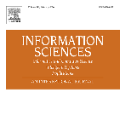Combining computational technologies and humanities is an ongoing effort aimed at making resources such as texts, images, audio, video, and other artifacts digitally available, searchable, and analyzable. In recent years, deep neural networks (DNN) dominate the field of automatic text analysis and natural language processing (NLP), in some cases presenting a super-human performance. DNNs are the state-of-the-art machine learning algorithms solving many NLP tasks that are relevant for Digital Humanities (DH) research, such as spell checking, language detection, entity extraction, author detection, question answering, and other tasks. These supervised algorithms learn patterns from a large number of "right" and "wrong" examples and apply them to new examples. However, using DNNs for analyzing the text resources in DH research presents two main challenges: (un)availability of training data and a need for domain adaptation. This paper explores these challenges by analyzing multiple use-cases of DH studies in recent literature and their possible solutions and lays out a practical decision model for DH experts for when and how to choose the appropriate deep learning approaches for their research. Moreover, in this paper, we aim to raise awareness of the benefits of utilizing deep learning models in the DH community.
翻译:暂无翻译



